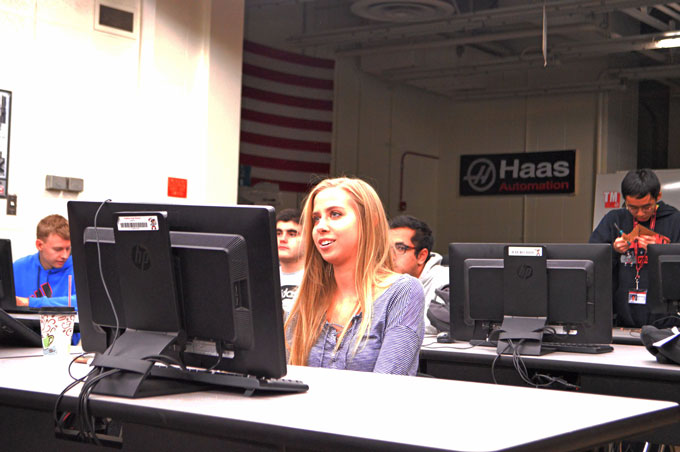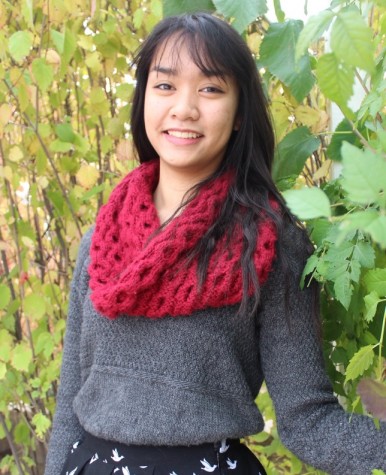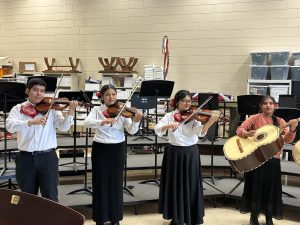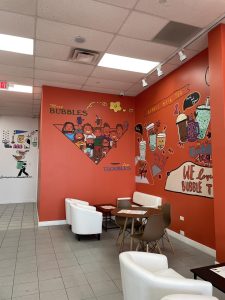Let’s hear it for the (Applied Tech) girls
Senior Jessica Kuksuk sits in on 8th period Computer Integrated Manufacturing.
December 8, 2015
For the past several weeks, the seventeen students of eighth period Computer Integrated Manufacturing, or CIM, have been developing “flat-pack” furniture pieces under the guidance of teacher Alex Larson. This classroom, which holds heavy duty machinery, is a noisy environment full of whirring and clanging.
And only three of the seventeen students are female.
In all science, technology, engineering, and mathematics (STEM) fields and levels of education, K-12 and beyond, similar situations are considered common. The longstanding disparity between the representation of each gender in these studies may stand rooted in stereotypes about the capabilities of women.
“Women in technological areas aren’t taken seriously or regarded as actual assets,” says senior Christina Kwiatt.
For example, careers in construction are believed to be difficult for women because they may require use of physical strength in the workplace. Such beliefs counteract the work of young, determined female students whose talents may bring not only diversity, but also development to the STEM fields.
Thankfully, efforts on the part of public schools aim to eradicate the underrepresentation of women in the sciences.
At Palatine High School, the Applied Technology department welcomes young women into all of the available classes, whether it is woodworking or automotives. Over the recent years, the number of female students has slowly increased as social awareness of this issue makes young women more comfortable to venture into male-dominated fields.
Female students can also be seen taking part in the engaging experiences offered by applied tech organizations. Girls in Engineering, proudly displayed on the department’s web site, features a group of hardworking young women who are committed to their current studies in applied tech classes. Woodworking Club, Computer Club, and other applied tech organizations allow women to continue their interests outside of school hours.
That is not to say that the current composition of classes is ideal; male students still far outnumber their female peers in these many of these classes. However, the forward thinking of this program on this subject mirrors the very thought processes about future technologies that it encourages in its students.
Stereotypes are quickly disappearing as females step up to become scientists, mathematicians, and engineers. The door to such futures is certainly open here at PHS.
“There [are] definitely [stereotypes]…I think throughout the years, [they are] going to decrease and people will notice that women are strong,” says senior and Robotics Club member Jessica Kuksuk.








